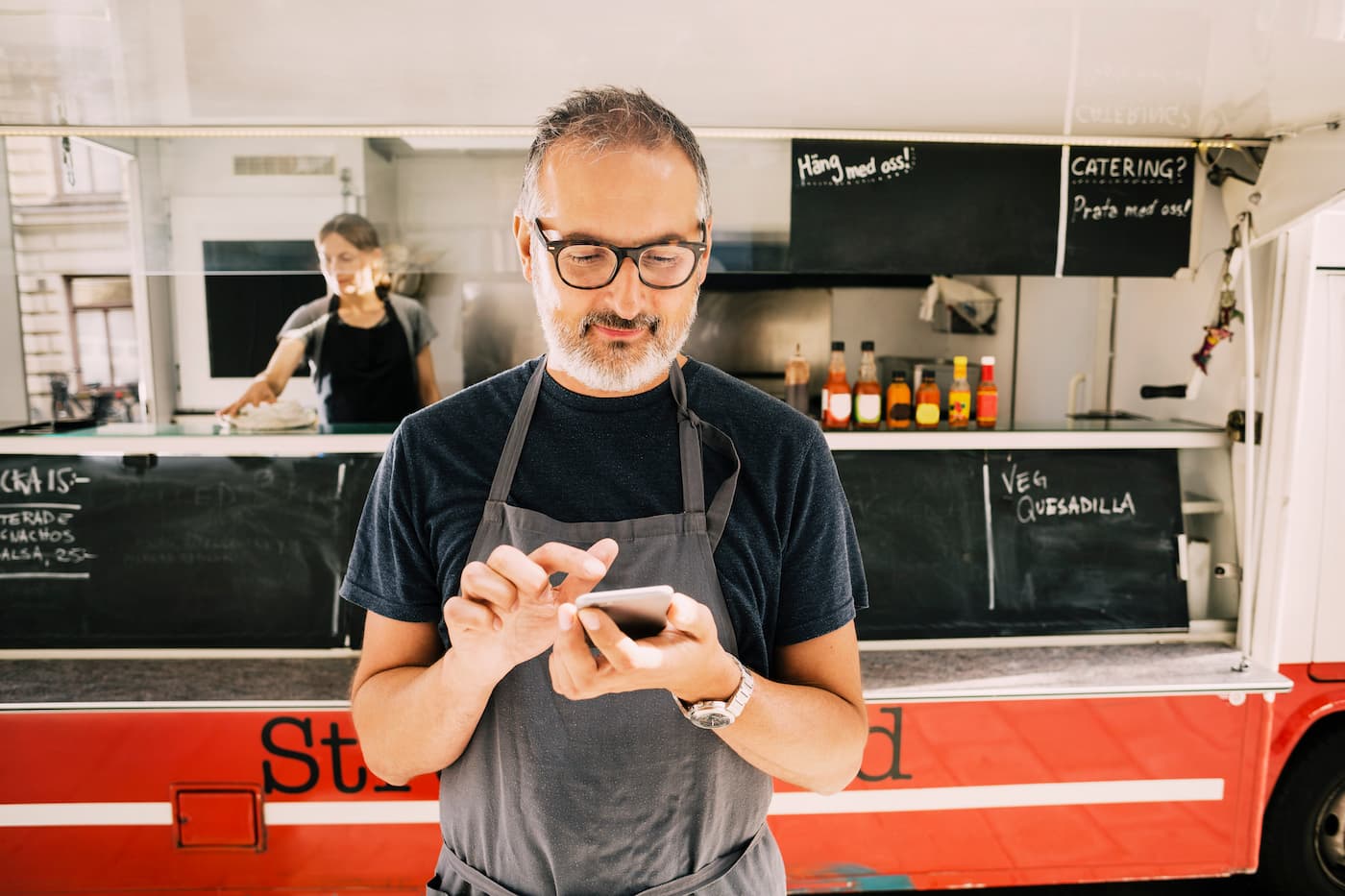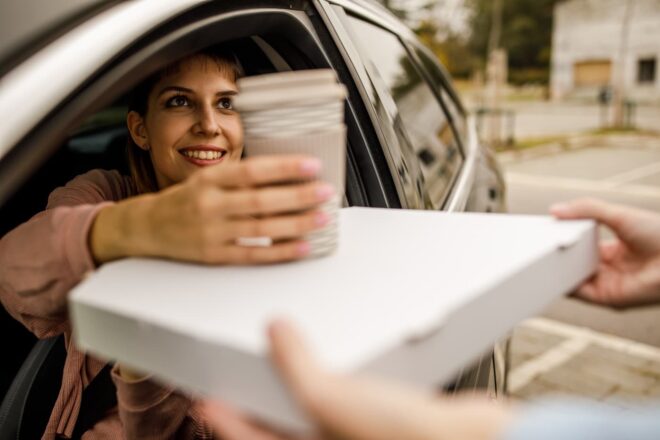A guide to sales tax for food trucks
Editorial Team
6 min read
Are you looking to start a food truck but aren’t sure what taxes you need to pay? Or maybe you have a food truck but with the first tax bill you received you’re realizing you need a sales tax strategy. Then read on for a full guide to sales tax for food trucks!
As a food truck owner, you’re likely working either completely alone, or as part of a very small team. That means you’re taking on a lot of different roles – chef, server, business manager, marketer. But you didn’t go into the food truck business just to be bogged down by logistics and paperwork.
This guide to sales tax for food trucks will help guide you through what you need to know in order to make sales tax as simple and pain-free as possible, so you can focus on all the parts of your business that really excite you – like your menu.
Do food trucks collect sales tax?
Food trucks are legally obligated to collect, file, and pay sales tax. For most states and cities, food trucks are treated the same as restaurants when it comes to sales tax obligations.
Not sure what the sales tax rate and obligations for your state is? We’ve put together a state-by-state guide on sales tax. Make sure you’re clear on exactly what your state and city tax rates are, and how your state classifies certain goods. For example, in some states, “prepared foods” are taxed differently than “groceries”. If you sell protein bowls on your food truck and you sell bananas, those two items may be taxed differently, with the banana being considered a grocery item.
While you collect sales tax with every single purchase, you only pay sales tax a few times a year, or once a month. That means that you need to keep your sales tax money separate from your profit to ensure that you have enough money to pay your tax bill when it’s due.
Note that you must collect sales tax with every purchase, even cash-only purchases. The IRS has some surprising ways of figuring out if you’re withholding sales tax on cash purchases, and at the end of the day you may end up losing more money with late fees and penalties if you try to withhold sales tax.
Should you add sales tax to your food truck menu prices?
As we covered above, you are responsible for collecting sales tax for every single purchase.
That being said, some food truck owners opt for including sales tax in their pricing, to simplify pricing and reduce the handling of coins.
For example, let’s say you sell sandwiches. Before sales tax, that sandwich costs $10. If your sale’s tax is 8%, then the price of your sandwich is now $10.80. You can either list the price on your menu as $10.80, and that’s exactly what the customer pays, or list your price as $10, and the customer pays $10.80 at the point of sale.
In the United States, customers expect sales tax to be tacked on to the final price. That being said, there may be some benefits to including sales tax in your pricing.
If you’re running a promotion, like $15 lunches, or $11 sandwiches, then including sales tax in that price is a way to entice customers. They are truly only paying $11 for that sandwich.
Other food truck owners may include sales tax in the price in order to come up with a nice, round number. This is great for high traffic and cash-heavy food trucks as it limits handling change.
If you decide to include sales tax in your food truck menu price, keep in mind that you are not allowed to over collect on sales tax. Using the example above, if you want your $10.80 sandwich to be an even $11, you cannot maintain a $10 price and collect $1 on sales tax. If you do so, you may need to issue refunds to customers, which can be a major headache. Instead, you can play around with your base pricing such that the added sales tax equals an even number.
Calculate sales tax for every location your food truck travels
Some food trucks stay relatively stationary, or service a handful of fixed locations within a county. But if you travel across tax districts or across state lines, you may need to collect different sales tax amounts.
Many localities also impose local taxes, in addition to state taxes. Make a list of all the locations your food truck travels, and make sure you know the sales tax rates for each of those locations. Also keep this in mind when renting your food truck out for special events.
You can refer to our state-specific sales tax guide for useful information on different sales tax rates within a given state.
Use DAVO with your Clover system to automate sales tax for your food truck
Does your food truck use Clover? Having a good POS system can reduce a lot of paperwork and headache for your food truck business. In addition to collecting payments, POS systems these days integrate with other apps to give businesses inventory management tools, marketing tools, and a lot more. Think of it like your digital business partner.
DAVO by Avalara integrates with your Clover system in order to automate sales tax for you. When you use DAVO, sales tax is automatically collected with every single purchase. That sales tax money is set aside every day, so you don’t have to worry about accidentally spending your sales tax money before the tax bill is due.
When it comes time to pay your sales tax bill, DAVO will automatically file and pay your sales tax bill on time, and in full. After a 5-10 minute setup, DAVO runs automatically and in the background.
For busy food truck owners, using a solution like DAVO can get rid of the stress and paperwork of sales tax.
*Important Disclaimer: DAVO is the sole and exclusive provider of services described in this article. Clover does not make any representations or guarantees as to these products / services. Please see DAVO Terms and Conditions for more information.
This information is provided for informational purposes only and should not be construed as legal, financial, or tax advice. Readers should contact their attorneys, financial advisors, or tax professionals to obtain advice with respect to any particular matter.
Related Posts
Connect with your customers with the Clover app
How to start a successful drive-thru beverage business
Popular Topics
Stay In Touch
Sign up and learn more about Clover.
Thank you for your subscription!
Recent Stories
- Jewelry store supplies and equipment needed for opening day
- How small businesses can use employee discounts to retain staff
- Tips and tricks for opening an outdoor pop-up restaurant
Please share your contact information
to access our premium content.
Thank you for sharing your contact information.
Download Now





